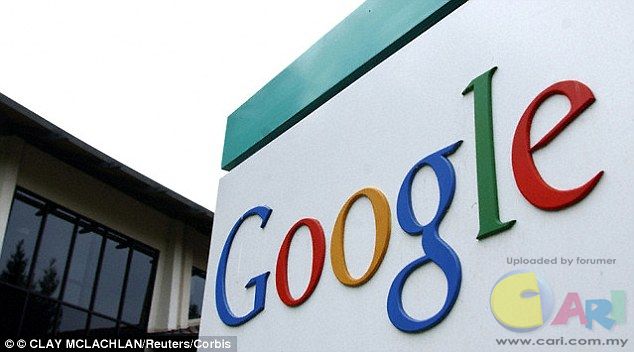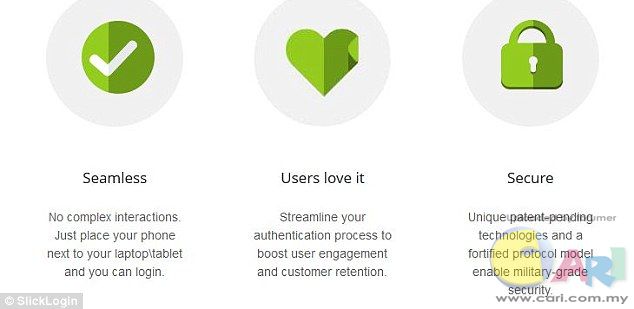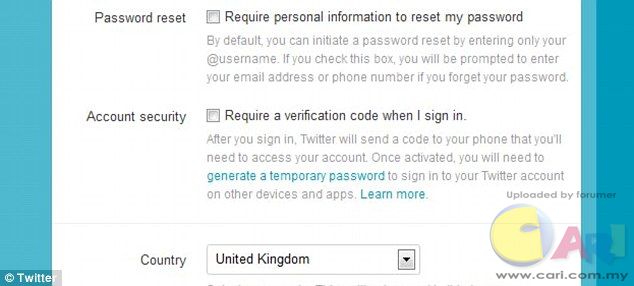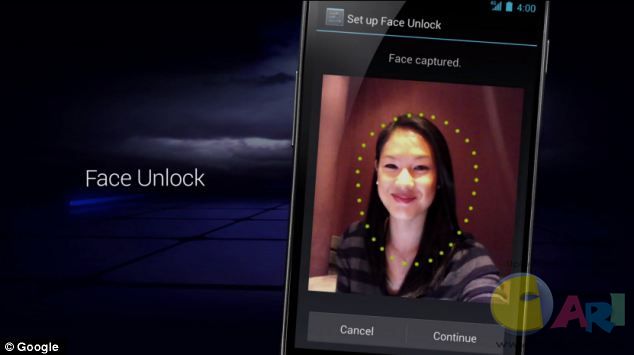|
Experts have been predicting the demise of passwords for years, but the problem is no-one can agree what to replace them with. Firms are already experimenting with biometric scanners and card readers, yet Google could soon replace passwords using sounds. Israeli startup and verification app SlickLogin officially announced it had been bought by the tech giant earlier this week - and the app works by listening to unique 'songs' generated when people log in to their online accounts.  Users click a SlickLogin button on websites to generate this unique ‘song.' The song is played through the speakers of a computer or laptop, and the SlickLogin app listens to this song to verify the user’s identity. This song is inaudible to human ears, and can only be picked up by the phone's built-in microphone. It can be used to replace passwords, or as part of a two-step authentication process. SlickLogin announced the acquisition on its website but did not disclose how much the deal was worth. 'Today we`re announcing that the SlickLogin team is joining Google,' the statement read. '[Google] shares our core beliefs that logging in should be easy instead of frustrating, and authentication should be effective without getting in the way.  'Google was the first company to offer two-step verification to everyone, for free - and they're working on some great ideas that will make the internet safer for everyone.' Many sites, including Google, Facebook and Twitter, as well as a number of banks, such as Natwest, have added two-step authentication, also known as two-step verification, to increase security for their customers. As the name suggests, two-step authentication involves giving users two security steps to go through before being allowed access to their account. This can include a text message sent to a phone, or a device that generates a unique number every 15 minutes.  Users enter their username and password, enter their unique code, and are allowed in. However, some users have complained this makes logging into an account overly complicated and long-winded. As a result, this security step is optional on many websites, and many users choose not to enable it. Google may be looking to add the SlickLogin technology to future versions of its Android software, for example. Google already lets its users enable two-step verification for their online accounts, and offers Face Unlock on Android. With Face Unlock, Android users can use their face to unlock their smartphone or tablet, in place of a PIN or a pattern.  DailyMail
|
ADVERTISEMENT